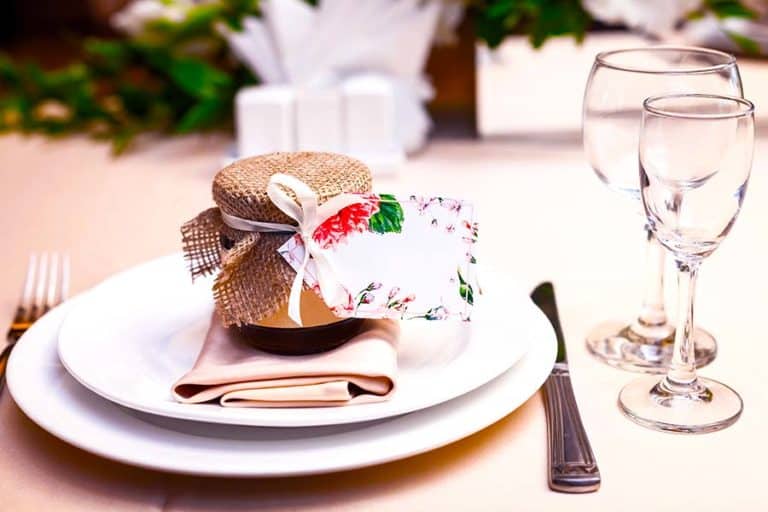How Much Should You Spend on Client Gifts?
Each year, whether it is during the holidays or another period, companies worldwide like to thank their customers by getting gifts for them.
The problem is, deciding how much to spend on client gifts can be confusing and it’s an issue that needs to be tackled delicately. As the company giving gifts to clients, having a ballpark range to shoot for would be a good start!
Depending on the size of your business;
- Micro Businesses: $50 to $200 to buy every client a gift
- Small Businesses: $200 to $1,000 to buy every client a gift
- Medium-sized Businesses: $1,000 to $5,000 to buy every client a gift
- Large Businesses: $5,000 & above to buy every client a gift
On top of this, there are other considerations that play a part in your corporate gift-buying decision and ones which you should pay attention to.
Let’s examine everything you need to know about this ordeal.
1. The Type of Client
When you think about buying gifts for your clients, there is often a few ways to go about it. For some, it depends on the importance of the client.
If someone buys one thing from you or uses your services once, they aren’t as important as repeat, long-term customers. While all customers are important, ideally, we all know there are some that matter just that little bit more.
When considering how much to spend on client gifts, the type of customer will matter. Are they good or repeat customers, or are they the type that “could” be? Both are important.
Therefore, you may want to spend on something for everyone who you do business with as a way to develop a better, long-lasting relationship with a person or business.
The amount you spend, however, will always be dictated in the size and extra income your company has. Therefore, it’s always best to identify who you are as a business as well as the customers you see either very rarely or routinely.
2. The Value of The Person or Business
As mentioned before, there will be some customers that your company will come into contact with a lot more than others. These long-term, repeat customers are obviously important to your bottom line. You want to make them happy and keep them there.
Do you need to buy these people a gift at any point? Some would say no.
However, professional relationships with the person or business that you develop are crucial to the success of your company overall. If by chance you lose a big client, it could hurt your company!
This means you need to make your valuable customers happy as much as you possibly can. Therefore, buying them gifts on the occasions when a gift is expected can only do good for you.
The amount you spend could be reflected in how much business they have done with you.
Perhaps, you can buy them something that costs up to 5% of the total money they gave you for your product or services. Let’s say you did $10,000 worth of business together in a given year. This equates to buying them something worth $500 max.
Otherwise, it could be any amount you deem comfortable for your business as long as it does not drastically erode the profit you made from your business with them.
This does not have to be done with every customer, clearly. Just the ones you find more value in than others.
3. The Closeness of The Relationship
The closeness of the relationship you have with a customer will certainly determine whether or not you’ll buy them a gift. Whether it’s a small or a large company, you always get customers who you’re closer to something just for being a great customer.
Every company can afford to buy something for the customers that keep their company alive and thriving. They will likely also be quite thrilled with it and you’ll then only better the relationship you have with that customer.
The end result is an even closer relationship, which hopefully means even more business down the line. All in all, these personal relationships you have with customers are very important.
If you’re thinking of customer gift ideas for your upcoming corporate gift-giving season, we’ve compiled some of the most unique yet practical gifts that your customer would be thrilled to receive!
However, some customers, even those who repeatedly use you, may go elsewhere if they feel another place is better or possibly cheaper.
The people or businesses you develop a close relationship with often will not leave your company even for a cheaper service. Rather, they’ll come to you and simply ask for a reduction in the cost of something if they need it.
In this way, everyone wins and that only happened because they felt they could speak with you about it. Obviously, this is much easier to do with those you have a close relationship with.
4. The Size of Your Business
Oftentimes, the answer to how much should you spend on client gifts relies largely on the size of your business, i.e. how much you can afford to spend without breaking the bank!
As a business owner or a procurement manager, it is only prudent to spend within what is comfortable for the business.
Believe it or not, your gift recipient would know when the value of your gift is deemed excessive relative to the value of the business they have with you.
5. The Size of the Business You’re Gifting To
When you think about how much to spend on client gifts, you also want to consider the size of the businesses that are using your services too.
If they are a large business, this could mean possible long-term, higher-paying opportunities. Thus, you might get them something even if they rarely used your company for something.
The idea here is that you’re trying to persuade them to use your company again, which could work with a nice gift being sent their way.
However, smaller companies you worked with may also become larger one day. Therefore, you do not want to forget about them. This is all about picking and choosing who you feel can give you the most business down the line.
6. Total Budget & Total Client Base
Sometimes, companies will need to consider the idea of only getting their most important customers a gift. Yet other companies will buy every single customer a gift.
This is important to consider when thinking about how much to spend on client gifts. The reason? The more customers you have to buy for, the less you’ll have to spend on each customer.
It may also be good to consider how much money you will have to spend. That means coming up with a total budget for gifts.
The best way to know how much to spend on client gifts is to base the amount on your company’s size. That can break down a little like this:
- Micro Businesses: $50 to $200 a gift per client
- Small Businesses: $200 to $1,000 a gift per client
- Medium-sized Businesses: $1,000 to $5,000 a gift per client
- Large Businesses: $5,000 & above a gift per client
Business size definition (source)
While this is just an idea, it gives you a concept of how much you can spend as a company given the possible budget you’ll have to work with.
On top of this, the budget can work whether or not you’re spending for some customers or all. The amount of money you have likely won’t change here. However, what you buy with this budget certainly will.
7. Quick Tips to Note on Corporate Gift-Giving
Aside from the cost considerations, here are some other tips to be mindful of:
- Be professional.
There may be many occasions when you’d want to send a gift to your beloved client. However, it’s best to stick to the holiday seasons when corporate gift-giving is the norm.
This would avoid the recipients feeling uneasy accepting the gift.
- Food and drink gifts are great but generic ones aren’t.
Some would argue that food and drink gifts are outdated, others would say otherwise.
As long as you put some thoughts into selecting and customizing the type of food or drink items you know the recipient already likes, there is no reason why you shouldn’t go down this route.
When done right, food and drink corporate gifts aren’t just safe choices they’re well-loved and greatly appreciated!
- It’s the thought that counts!
Figures on the gift value given above are simply a guide. It’s always best to channel more of your thoughts into what gifts your clients would appreciate having.
- Gift cards only work with your internal employees.
There may be some truth to the whole ‘gift cards being the lazy man’s choice’ as they are looked at as impersonal gifts.
However, if you know your clients are into specific interests, a gift card that allows them to indulge in that interest may work very well indeed.
- Time Your Gifts.
Your gift may be well-intentioned. But if the gift arrives late, your intended recipient may have gone off for the holidays.
After spending your hard-earned money on a well-thought-out gift, the last thing you want is to kill the excitement of a well-timed gift!
- Be personal – Include a handwritten note with your gifts.
Adding a personal touch to your client gifts in an otherwise corporate world can often work wonders!
- Don’t include excessive branding and promotions.
Client gifts are primarily for you to express appreciation to your clients for their business and relationship. Therefore, excessive promotion of your business in the gifts would come across as being pushy.
- Check your local compliance law.
In various industries, there are specific laws that govern what constitutes a gift, what’s appropriate and what not.
As this is a wide-ranging legal subject and one that varies depending on which jurisdiction your business is in, it’s best to check first or consult your legal expert before committing to spending money on a client gift.
- Stick to recipients’ gifts policy, if any.
More and more businesses, especially the larger ones, have an internal Gift Policy that dictates whether or not an employee within their organization can receive gifts from outsiders.
That policy would most probably also contain other restrictions on gift-giving and receipt of the same.
As such, it’s best to check beforehand, especially the larger companies. In corporate gift-giving, it’s important to keep things ethical so nobody lands in trouble.
- Corporate gifts for your staff.
Last but not least, gifts for your staff is just as important as gifts for your clients. It’s undeniable that gifts to show employee appreciation goes a long way in boosting their morale and overall employee retention.







